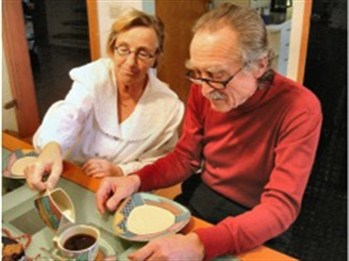Aging seniors are often faced with a dilemma: how can they go about living an independent life when factors related to their age or health challenge their abilities to be as self-reliant as they are accustomed to?
While many older adults are trying their best to live as independently as possible, their family and loved ones often unintentionally discourage these independence-seeking seniors from living as self-sufficiently as they are capable of. In recognition of National Senior Independence Month, we have highlighted four things for loved ones to avoid when encouraging senior independence.
1. Not allowing them to do things on their own
Loved ones will often take on many daily tasks for their aging family member or friend, including simple personal care responsibilities, in an effort to make their daily lives easier for them. However, sometimes the tasks caregivers take on are ones that the older adult is still fully able to do. While these intentions are pure, it often causes seniors to feel less capable and self-sufficient than they truly are.
If your loved one can safely complete a task on their own, you should continue to let them do so.
2. Doing things for our aging loved ones, instead of with them
When older adults can’t accomplish tasks completely by themselves, caregivers may try to complete the chore for them. However, if a senior can help in any way – whether it’s with personal hygiene, cooking or balancing a checkbook – taking away their opportunity to participate will make them feel helpless.
Whenever possible, work together to accomplish chores that your loved one needs assistance with, instead of taking on the task entirely by yourself.
3. Refusing to modify their environment
In its current state, your loved one’s home and frequently used items may be challenging their abilities to live as independently as possible. Instead of immediately assuming they need your assistance, consider what modifications can be made and what adaptive equipment can be added to help them accomplish their daily tasks.
For example, adding a chair to a shower can make it easier for an older adult to bathe. If they are still able to walk but aren’t as confident on their feet as they used to be, handrails can be added to the walls to help them stabilize themselves when walking.
4. Not supporting their desire to maintain an active schedule
Just because a loved one is aging doesn’t mean they should have to sit at home all day. While it’s not unusual to worry about an aging person overexerting themselves, remember that having an active social life and schedule can help seniors stay healthy and happy longer than if they were isolated.
Whether they enjoy playing card games with friends, going bowling or going out to eat, older adults are most happy – and feel self-sufficient – when they are able to choose and participate in the activities they enjoy the most.

